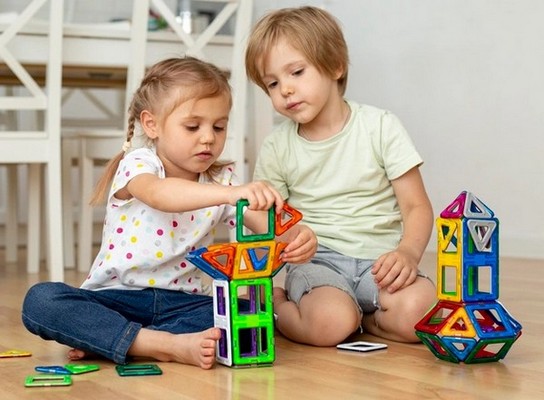
6 Useful Tips for Buying Toys for Children with Special Needs
When we speak about gifts for children with special health care needs, it is necessary to consider several additional things. That kind of purchasing can be confusing and somehow challenging. Regardless of where you decide to buy toys, online or in a brick-and-mortar store, the most important is to know that they have to be based on a child’s individual needs.
1. The toys don’t have to be expensive
Electronics and high-tech toys are not necessary. They can be complicated to use and may frustrate your child. On the other hand, simple toys like blocks, crayons, puzzles, and wooden things are quite enough for enhancing a child’s abilities to adjust their motoric and social skills.
2. Consider a child’s individual abilities
The proper toy should make a child’s developmental age the priority, not their real age. Children with special needs are at risk of injuries if their physical or behavioural development and patterns don’t match the age that is mentioned on the package.
3. Books are toys as well
A good idea is to buy your little one as many books as possible, following their developmental age, of course. That can inspire both of you with various ideas on how to play different games. The American Academy of Pediatrics (AAP) recommends reading to or with your child as often as every day.
4. Opt for online purchasing
Going to a toy store is frustrating for many adults. Toy stores are generally too loud and full of customers. Finding the right toy stores is also very difficult, especially if you are living in a big city. To avoid chaotic walking tours, a good idea is to research what you want to buy on the internet or, even better, to take advantage of online shopping. Fortunately, there are online shops where you can find a range of special needs toys such as Pop Up T-Rex, SPEKS – Spectrum, Dimple Pops Deluxe, etc.
5. Focus on the child’s preferences
According to the newest research, especially regarding children with autism, including interests in play and learning can reduce impropriety and increase creative skills. For example, if a child likes animals and activities in the open, try to find games or toys that are related to that. On the other hand, if a child is sensitive to noise, toys with loud sounds and sirens might not be the right ones for them.
6. Do not hesitate to ask parents, friends and family
Do you have to buy a toy for someone else’s child? Don’t panic and be ashamed! Just politely ask parents what kind of toys their little one likes the most. Every parent knows their child the best and that can be very helpful for you. Parents cooperate with teachers and therapists, therefore, they will be happy if you accept their advice and buy a toy that they need most at the moment. Of course, you can always ask friends and family of the child for whom you are buying the gift what they like and dislike.
Parental role is crucial
The creative activities reinforce early education goals and offer an interesting learning experience, therefore, the parent’s role is crucial. Parents who read, play, communicate with their children and listen to them, in combination with appropriate toys, will gain the best relationship with their children with special needs. According to Alan L. Mendelsohn, an expert in early childhood: “Parents should choose toys that they can use to play together with their child… The goal is to have high quality, bonding, warm time together as they play, rather than looking for the toy to advance the child’s development in some way”.
